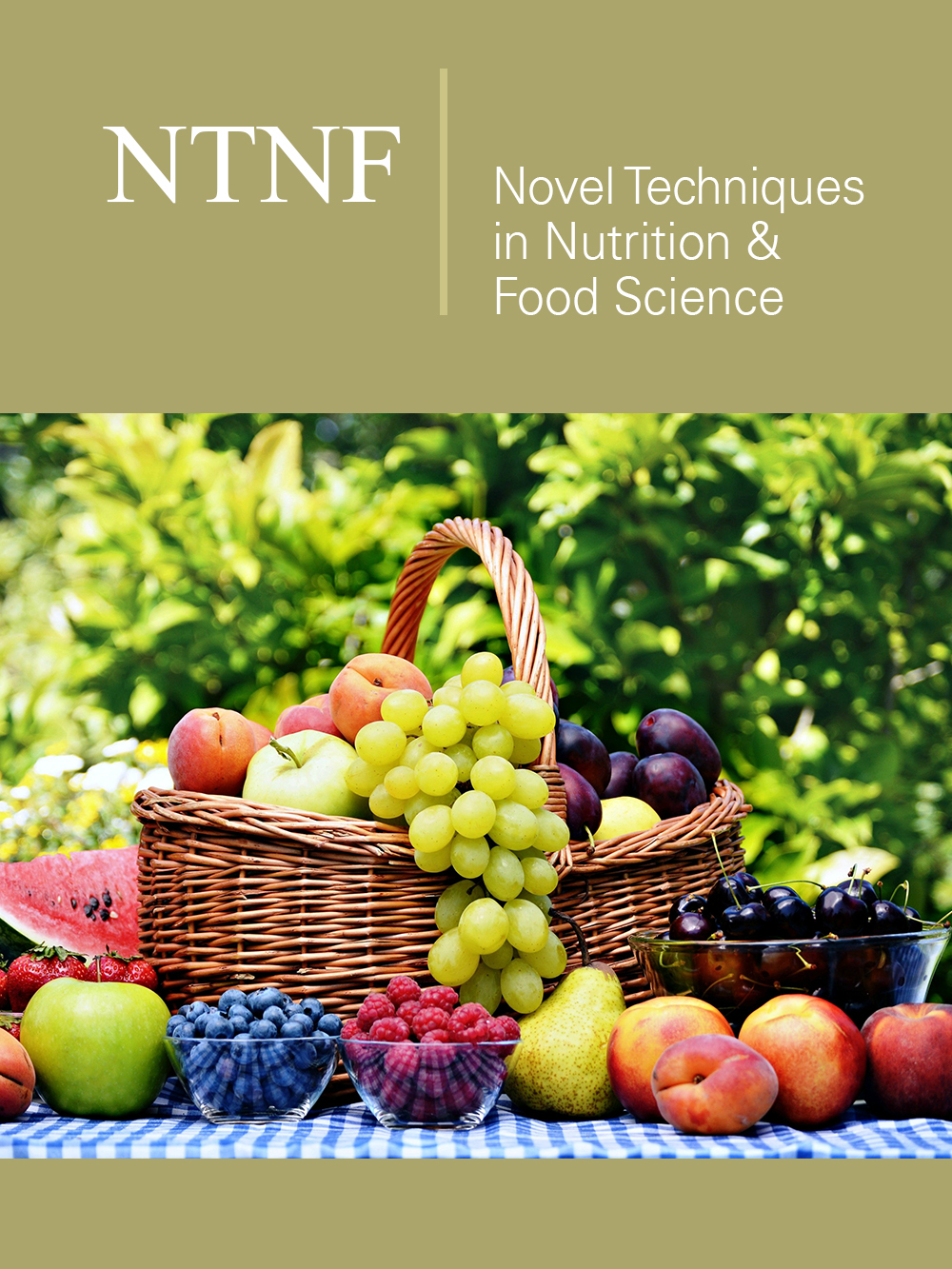- Submissions

Abstract
Novel Techniques in Nutrition and Food Science
Dietary Intake Assessment of Sugar in Several Pack Sizes of Carbonated Soft Drinks in Nigeria
-
Open or CloseFregene Christopher*, Mahmood Sugra T, Ojji Dike and Adegboye Abimbola
Department of Medical Biochemistry and National Agency for Food and Drug Administration and Control, University of Abuja, Nigeria
*Corresponding author:Fregene Christopher, Department of Medical Biochemistry and National Agency for Food and Drug Administration and Control, University of Abuja, Nigeria
Submission: July 15, 2025;Published: August 19, 2025

Volume8 Issue 4 August 19, 2025
Abstract
Introduction: Obesity is estimated to affect over 22% of the adult population in Nigeria, which is ‘off
course’ to preventing this number from increasing. There is increasing concern that intake of added
sugars-particularly in the form of sugar-sweetened beverages-increases overall energy intake, leading to
an unhealthy weight gain (obesity) and increased risk of NCDs. The National Policy on Food Safety and
Quality and its Implementation Plan 2023 seeks to address this concern through its key activity to develop
and implement a national strategic plan/guideline for the reduction/reformulation of sugar in packaged
and processed foods as well as spices [1]. Pack sizes of sugar-sweetened beverages, particularly carbonated
soft drinks have increased substantially over the years with the current trend of 600ml bottles being
popularized in the Nigeria market. This “supersizing” phenomenon might be an important contributor
to the rise in obesity rates in Nigeria. Although there is national nutrition policy to reduce sugar intake
and content of packaged and processed foods, there is gap in implementation due to lack of policies that
regulate pack sizes of sugar-sweetened beverages. The World Health Organization recommends reducing
the intake of added sugars to less than 10% of total energy intake. Controlling pack sizes of carbonated
soft drinks may be a highly effective public health regulatory measure that could contribute to placing
Nigeria ‘on course’ towards achieving global target of reducing obesity. This study estimates the risk of
excessive sugar intake from several pack sizes of carbonated soft drinks in Nigeria.
Methodology: The level of sugar in carbonated soft drinks was estimated by this study from on-pack
nutrition labels of brands most commonly available in the open markets and supermarkets in Nigeria
and daily soft drink consumption data from research studies. The assessment was done to evaluate
dietary sugar intake and calculate its associated risk to health from soft drink consumption using the
recommended methods in the Codex Food Safety Risk Analysis Manual and FAO Dietary Risk-Pesticide
Registration Toolkit. Comparison of the estimated dietary intake was made with the recommended
maximum level of sugar intake from the WHO Population Nutrient Intake Goals and the WHO Sugar
Guidelines.
Result: The result shows that the average sugar content of carbonated soft drinks in Nigeria is 8.3 g
per 100ml. It also shows that the estimated intake of sugar increases with pack size, from 16.6g per day
(200ml pack) to 49.8g per day (600ml pack). It is estimated that the risk of excessive sugar intake from
200ml to 250ml pack is low, from 300ml to 330ml pack is medium and from 35ml to 600ml pack is high.
A high-risk score warns of the possibility to exceed the WHO recommended maximum daily sugar intake
and indicates the need for risk management strategies. If the proposed maximum sugar level of 5g per
100ml of carbonated soft drinks is implemented, it is estimated that the risk of excessive sugar intake
from 200ml to 450ml pack is low, from 500ml to 550ml pack is medium and from 600ml pack is high.
The relative risk reduction is estimated to be 40%. This suggests that the likelihood of exceeding the
WHO recommended maximum daily sugar intake is 40% less if maximum sugar level for carbonated soft
drinks is set at 5g per 100ml. The implementation of the proposed maximum sugar level and pack size
cap is estimated to reduce significantly the intake of sugar from carbonated soft drinks and subsequently,
the risk of obesity associated with excessive intake of sugar. Finally, the result shows that carbonated soft
drinks are classified as excessive in free sugars. This further supports the suggestion that the consumption
of the drinks makes it more likely for the diet to exceed the WHO recommended sugar goal.
Conclusion and recommendation: This study concludes that consumption of carbonated soft drinks increases the risk of excessive sugar intake and unhealthy weight gain and is likely to be a major reason behind obesity rise in Nigeria. It recommends the establishment of pack size cap of 500ml with maximum sugar level of 5g per 100ml of the product.
Keywords:Dietary intake assessment; Added sugars; Soft drinks; WHO sugar guidelines; WHO African region nutrient profile model; National policy on food safety and quality
 a Creative Commons Attribution 4.0 International License. Based on a work at www.crimsonpublishers.com.
Best viewed in
a Creative Commons Attribution 4.0 International License. Based on a work at www.crimsonpublishers.com.
Best viewed in 







.jpg)






























 Editorial Board Registrations
Editorial Board Registrations Submit your Article
Submit your Article Refer a Friend
Refer a Friend Advertise With Us
Advertise With Us
.jpg)






.jpg)














.bmp)
.jpg)
.png)
.jpg)










.jpg)






.png)

.png)



.png)






